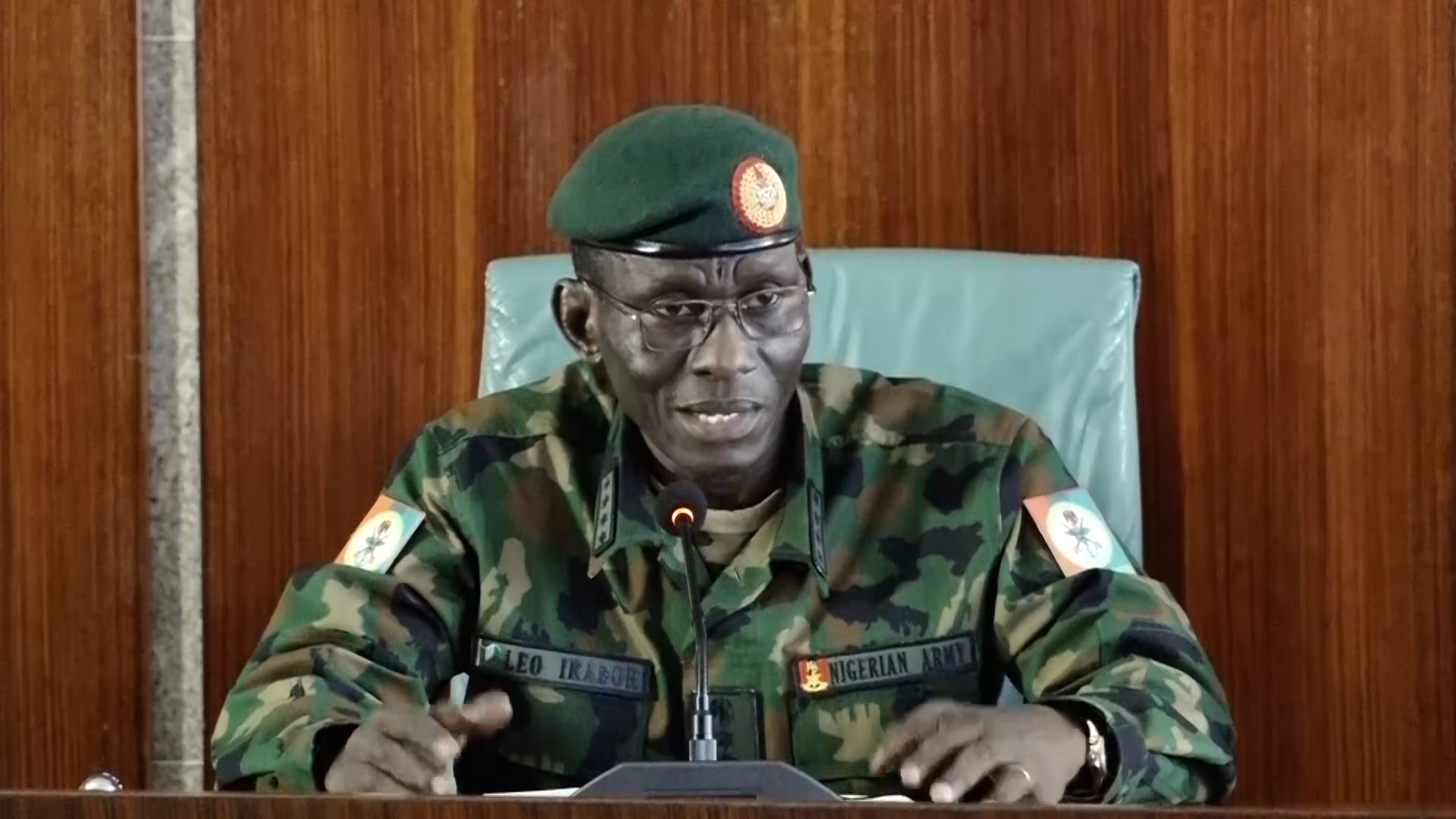NATIONAL SECURITY

RETIRED GENERALS SUPPORT STATE OF EMERGENCY TO TACKLE TERRORISM
Some retired senior military officers have thrown their weight behind the call by former Chief of Defence Staff, General Lucky Irabor (retd.), for the declaration of a state of emergency to strengthen Nigeria’s fight against Boko Haram and terrorism.
In his new book titled “Scars: Nigeria’s Journey and the Boko Haram Conundrum,” Irabor argued that the lack of political will has hindered an effective response to insurgency, noting that a state of emergency — endorsed by the National Assembly — would mobilize all elements of national power toward ending the war.
Irabor, who served as Chief of Defence Staff under the Buhari administration, wrote, “The government has yet to demonstrate the political will and use the necessary instruments to declare a war against Boko Haram. A properly backed emergency proclamation will enable greater and more focused governmental attention to galvanize the economic, political, social, diplomatic, information, and military elements required for victory.”
He further explained that tactical and operational successes cannot translate to lasting victory without strategic coherence, as “strategy integrates the total elements of national power under political leadership.”
Despite significant military progress against insurgents — including the neutralization of top commanders and arrests of many fighters — Boko Haram’s attacks in the North have recently intensified, leading to widespread destruction and displacement.
Last week, the group overran the border town of Kirawa in Borno State, destroying a military barracks, several homes, and the palace of the district head. The assault forced more than 5,000 residents to flee into Cameroon.
The militants also attacked an army base in Borno, killing four soldiers and setting military equipment ablaze. Another coordinated attack in Banki was successfully repelled by joint security forces, though a police officer sustained minor injuries.
Governor Babagana Zulum has since appealed for stronger military presence in border communities to restore security. Over 2.2 million people remain internally displaced, while humanitarian conditions continue to deteriorate in many areas.
Commenting on Irabor’s suggestion, Brigadier General Peter Aro (retd.) described the call as “timely and grounded in deep operational experience.”
He stated, “General Irabor’s position is well-informed. Having served at the operational and strategic levels, he understands the dynamics. However, the state of emergency must be genuine — not symbolic. Once politics steps aside and security takes full command, coordination improves, resources flow effectively, and actions become decisive.”
Supporting the same view, retired Major General Dayo Olukoju said a state of emergency was necessary but should be complemented by a multilateral approach addressing the root causes of terrorism.
“I agree with him,” Olukoju said. “But we must go beyond military solutions. Traditional, spiritual, elite, and community leaders all have roles to play. We must address underlying issues such as freedom and identity. If these root causes are ignored, the problem could resurface even after military victories.”
Colonel Saka Folusho (retd.) also supported the idea of declaring a state of emergency but warned that it must be accompanied by efforts to curb the illicit arms trade fueling insecurity.
“There’s nothing wrong with declaring a state of emergency,” he said. “But we must also deal with illegal arms sales. When a person sells weapons meant for self-defense, it’s like aiding one’s own destruction.”
Folusho further emphasized the need for clear command structures and adequate welfare for troops. “When soldiers earn as little as N50,000 and lack proper equipment, it’s hard to expect optimal performance,” he said.
He commended the Nigerian Army’s recent steps to improve local military production but urged consistent and sustained action.
Meanwhile, the Northern Elders Forum reiterated its demand for the declaration of a state of emergency on insecurity, especially in the North.
Forum spokesperson Prof. Abubakar Jiddere said the situation in states such as Zamfara, Katsina, Niger, Kwara, Benue, and Borno requires urgent national attention.
“The government must deploy security agencies massively — the police, the military, and other armed forces — to areas worst affected by crisis,” Jiddere stated. “It’s not about suspending governance but prioritizing security as a matter of national emergency.”
When contacted, the Federal Government had yet to respond to inquiries regarding Irabor’s proposal.
However, Borno State Commissioner for Information and Internal Security, Prof. Usman Tar, said Irabor was entitled to his opinion. “He has expressed his view. If more clarification is needed, he should be asked directly,” Tar said.
In a related development, a federal lawmaker representing Demsa, Numan, and Lamurde constituencies in Adamawa State, Kwamoti Laori, maintained that state policing remains the most effective long-term solution to insecurity.
According to him, “State police worked effectively in the 1960s, and reintroducing it would help communities take ownership of their security and reduce dependence on federal structures.”
"This represents a significant development in our ongoing coverage of current events."— Editorial Board









